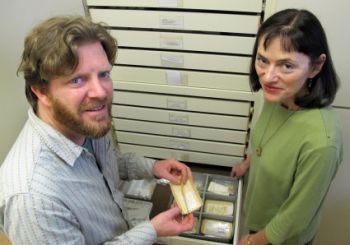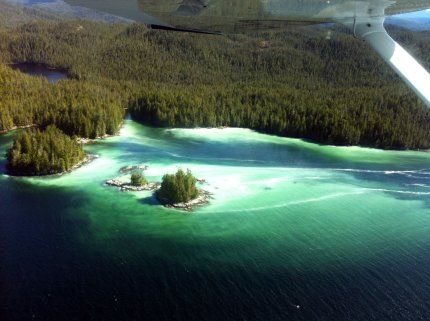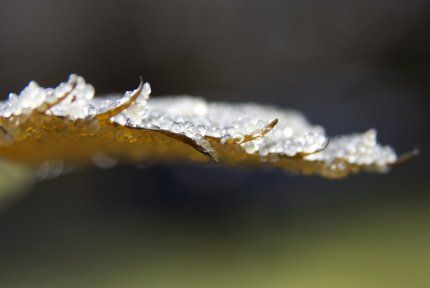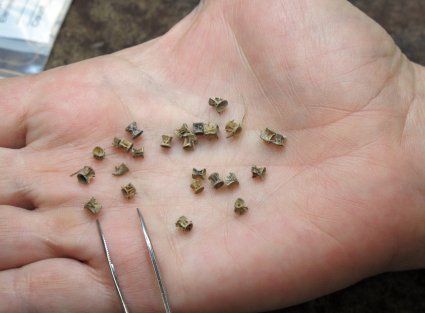
Publisher:
Bonnie King
CONTACT:
Newsroom@Salem-news.com
Advertising:
Adsales@Salem-news.com

~Truth~
~Justice~
~Peace~
TJP
Feb-17-2014 22:22

 TweetFollow @OregonNews
TweetFollow @OregonNews
Oregon Researchers Say Ancient Herring Catch Nets Fisheries Weakness
Salem-News.com"This research by Drs. McKechnie and Moss furthers our understanding of the evolution of coastal ecology and may lead to improved management of forage fisheries in the future." - Kimberly Andrews Espy, UO Graduate School
 Among the study's nine co-authors are Iain McKechnie, who co-led the project as a doctoral student at the University of British Columbia and is now a postdoctoral researcher at the University of Oregon, and Madonna L. Moss, a professor of anthropology at the UO. |
(EUGENE) - Archaeological data from 171 sites in southeast Alaska, British Columbia and Washington indicate that management efforts along the Pacific Coast need to take a longer view into the past to better protect fisheries for the future.
That is a key conclusion of a multi-institutional study appearing online this week ahead of regular publication in the Proceedings of the National Academy of Sciences. Among the study's nine co-authors are Iain McKechnie, who co-led the project as a doctoral student at the University of British Columbia and is now a postdoctoral researcher at the University of Oregon, and Madonna L. Moss, a professor of anthropology at the UO.
The data studied primarily covered the last 2,500 years at the sites but span the past 10,700 years. Pacific herring (Clupea pallisii) has been a foundation for the region's coastal ecosystem and is an important food source for indigenous populations. The researchers concluded that herring have been consistently abundant in all regions, but especially in the northern Salish Sea and southwestern Vancouver Island areas.
 Herring spawn on central British Columbia Coast |
"This study extends our perspective on coastal fisheries in the Pacific Northwest. Among the dozens of species harvested by countless generations of Native Americans and First Nations in Canada, one stands out archaeologically: herring," said McKechnie, a Social Science and Humanities Research Council of Canada Fellow at the UO. "Herring was a consistent focus of the fishery for at least the last 2,500 years. This helps contextualize the circumstance of present-day fisheries and allows us to reconsider how herring was a food fish, not just as roe or bait as it is with much of the commercial fishery today."
Moss, who for years has studied the anthropological significance of salmon and cod, said that Northwest herring populations have been impacted by 120 years of industrial fishing and, especially, since the 1970s by the increased demand for their eggs, or roe, especially in Japan. In contrast, Native Northwest indigenous populations harvest eggs after spawning, collecting them from branches placed in the intertidal zone, and eat the fish they catch.
The authors combed through reams of archaeological reports that analyzed almost half a million fish bones at the sites. That data from the past was combined with new research in progress along the British Columbia coast. Indigenous peoples harvested at least 100 different fish species in the region, researchers said.
 Herring roe on kelp on Calvert Island, B.C. (Caroline Fox/Raincoast.org) |
"By compiling the largest dataset of archaeological fish bones in the Pacific Northwest, we demonstrate the value of using archaeological data to establish an ecological baseline for modern fisheries," said McKechnie, who will be continuing his research alongside Moss.
"This kind of ecological baseline extends into the past well beyond the era of industrial fisheries and is necessary for designing sustainable management today," said co-author Ken Lertzman, a professor at Simon Fraser University and director of SFU's Hakai Network for Coastal People, Ecosystems and Management.
The study was an initiative of the SFU-based Herring School, a group of researchers that investigates the cultural and ecological importance of herring. Co-author and SFU archaeology professor Dana Lepofsky said the findings "fit well with what First Nations have been telling us."
 Vertebrae from herring collected at an archeological site |
Since the range of Pacific herring crosses national borders, it's critical for U.S. and Canadian researchers to tackle these issues together, working with the region's First Nations and Native American communities and fisheries scientists and policymakers, Moss said. "This is one of the reasons I'm so excited about having Dr. McKechnie as a postdoctoral fellow at the University of Oregon," she added. "Forage fisheries around the world are in trouble. It's important to understand their long-term dynamics and intervene, if we can."
The new study, Moss said, builds on a "herring synthesis" project completed in 2010 with Virginia Butler of Portland State University, a co-author on the new study, and Tom Thornton of Oxford University in a collaboration that included Tlingit experts. That project brought together archaeology, oral history and traditions, as well as ethnographic and historical data to understand the long-term use and cultural importance of herring to Tlingit and Haida communities in Alaska.
"Local communities provided a wealth of information about how herring have been important in people's lives," Moss said. "By combining archaeology and place-based cultural knowledge, we can better understand coastal ecology prior to industrial development."
♦ 2011 article on McKechnie and Lepofsky's research (Behold! The Mighty Herring!)
"Researchers at the UO are fostering a sustainable future for our planet and its people," said Kimberly Andrews Espy, vice president for research and innovation and dean of the UO Graduate School. "This research by Drs. McKechnie and Moss furthers our understanding of the evolution of coastal ecology and may lead to improved management of forage fisheries in the future."
National Geographic Research, Social Sciences and Humanities Research Council of Canada, the Tula Foundation, the Hakai Network for Coastal People, Ecosystems and Management, the North Pacific Research Board, and a Borden Fellowship at the University of British Columbia supported the research.
Additional co-authors are Trevor J. Orchard of Lakehead University in Orillia, Canada; Gary Coupland of the University of Ontario, Toronto; Fredrick Foster of Rutgers University, New Brunswick, N.J.; and Megan Caldwell of the University of Alberta, Edmonton, Canada.
About the University of Oregon
The University of Oregon is among the 108 institutions chosen from 4,633 U.S. universities for top-tier designation of "Very High Research Activity" in the 2010 Carnegie Classification of Institutions of Higher Education. The UO also is one of two Pacific Northwest members of the Association of American Universities.
 |
 |
 |
Articles for February 16, 2014 | Articles for February 17, 2014 | Articles for February 18, 2014

Quick Links
DINING
Willamette UniversityGoudy Commons Cafe
Dine on the Queen
Willamette Queen Sternwheeler
MUST SEE SALEM
Oregon Capitol ToursCapitol History Gateway
Willamette River Ride
Willamette Queen Sternwheeler
Historic Home Tours:
Deepwood Museum
The Bush House
Gaiety Hollow Garden
AUCTIONS - APPRAISALS
Auction Masters & AppraisalsCONSTRUCTION SERVICES
Roofing and ContractingSheridan, Ore.
ONLINE SHOPPING
Special Occasion DressesAdvertise with Salem-News
Contact:AdSales@Salem-News.com


Salem-News.com:

Terms of Service | Privacy Policy
All comments and messages are approved by people and self promotional links or unacceptable comments are denied.
[Return to Top]
©2025 Salem-News.com. All opinions expressed in this article are those of the author and do not necessarily reflect those of Salem-News.com.